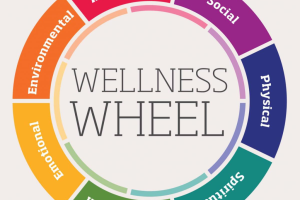Unlocking the Path to Wellness: Tips for a Healthy Life

Importance of Wellness
In a fast-paced world where stress is a common companion, the importance of wellness cannot be overstated. Wellness encompasses much more than just physical health; it integrates emotional, mental, spiritual, and social aspects as well. Individuals often find themselves juggling overwhelming responsibilities, whether it be work, family, or personal commitments. This constant juggling act can lead to burnout and can diminish overall quality of life. The pursuit of wellness is essential, as it offers a holistic approach towards living a fulfilling life. When individuals prioritize their well-being, they are more likely to experience enhanced productivity, improved mood, and resilience against life’s challenges. For instance, a friend of mine decided to embark on a wellness journey. Over time, she noticed positive changes not only in her energy levels but also in her ability to handle stress. Here are a few key reasons why wellness is important:
- Unlocking the Path to Wellness: Tips for a Healthy Life
- Importance of Wellness
- What is a Healthy Life?
- Physical Wellness
- Exercise Regularly
- Balanced Diet
- Mental Wellness
- Practice Mindfulness
- Manage Stress Levels
- Emotional Wellness
- Cultivate Positive Relationships
- Practice Self-Care
- Spiritual Wellness
- Meditation and Reflection
- Engage in Meaningful Activities
- Social Wellness
- Stay Connected with Others
- Give Back to the Community
- Boosts mental health: Engaging in wellness practices fosters a positive mindset.
- Enhances productivity: A balanced lifestyle can lead to greater efficiency and effectiveness.
- Improves relationships: When individuals are well, they can connect better with others.
What is a Healthy Life?
A healthy life is often defined by the ability to maintain balance across the various facets of wellness. It goes beyond merely being free from illness; it involves a vibrant, energetic, and fulfilling existence. A healthy life can be characterized by several attributes:
- Physical Activity: Regular exercise fosters good physical health and enhances mood.
- Nutritional Choices: A balanced diet rich in nutrients contributes to overall well-being.
- Emotional Stability: Understanding and managing one’s emotions is vital for mental health.
- Social Connections: Positive relationships with family and friends enrich life experiences.
Living a healthy life ultimately means cultivating habits that promote long-term well-being, allowing individuals to thrive in every aspect of their lives.
Physical Wellness
Exercise Regularly
Transitioning from understanding what constitutes a healthy life involves acknowledging the critical role of physical wellness. One fundamental aspect of maintaining physical wellness is regular exercise. Incorporating movement into daily routines doesn’t just enhance physical appearance; it significantly supports mental clarity and emotional stability as well. For example, a colleague of mine struggled with fatigue due to a sedentary job. Once he committed to a routine that included jogging three times a week, he reported increased energy levels and a clearer mind. Here are some effective ways to incorporate exercise into daily life:
- Set realistic goals: Start small, aiming for just 20-30 minutes of activity most days.
- Mix it up: Combine cardio, strength training, and flexibility exercises to keep it interesting.
- Make it social: Working out with friends can provide motivation and make exercise more enjoyable.
Balanced Diet
Alongside regular exercise, a balanced diet is essential in achieving physical wellness. Eating a variety of foods not only fuels the body but also nourishes the mind. Many often overlook the importance of nutrition in overall health; however, what we consume can significantly affect our energy levels and emotional wellbeing. A balanced diet typically includes:
- Fruits and vegetables: Aim to fill half your plate with colorful options for essential vitamins and minerals.
- Whole grains: Choose whole grains over refined grains to ensure adequate fiber intake.
- Lean proteins: Incorporate sources like fish, chicken, beans, or tofu to repair body tissues and build muscle.
Consider preparing meals in advance to encourage healthier eating habits. Personally, I find that cooking a large batch of quinoa and roasted veggies at the start of the week makes it easy to grab wholesome meals on busy workdays. In concluding this section, the synergy of exercise and a balanced diet can play a formidable role in enhancing physical wellness, setting the stage for a vibrant and energized life.
Mental Wellness
Practice Mindfulness
Moving from physical wellness, it’s crucial to focus on mental wellness, a component that often gets overlooked in our busy lives. One effective way to enhance mental wellness is by practicing mindfulness. Mindfulness is the art of being present in the moment and can significantly improve one’s ability to manage thoughts and emotions. One personal experience highlights this perfectly: during a particularly hectic period at work, I found myself feeling overwhelmed. I decided to dedicate just ten minutes each morning to mindfulness meditation. This simple practice shifted my perspective and helped me approach my days with a calmer mindset. To start practicing mindfulness, consider trying these techniques:
- Breathing Exercises: Spend a few minutes focusing solely on your breath. Inhale deeply and exhale slowly.
- Mindful Walking: Take a stroll and pay attention to every step, the sensation of your feet on the ground, and the sounds around you.
- Gratitude Journaling: Write down three things you are grateful for each day, fostering a positive mindset.
Manage Stress Levels
In addition to mindfulness, effectively managing stress is vital for maintaining mental wellness. Life can be unpredictable, and knowing how to navigate stress can make a world of difference. It’s essential to identify personal stressors and develop strategies to cope. Here are several practical methods to manage stress:
- Prioritize Self-Care: Make time for activities you enjoy, whether it’s reading, hiking, or spending time with loved ones.
- Establish Boundaries: Learn to say no to commitments that overwhelm you and practice limiting time with negative influences.
- Engage in Physical Activity: Exercise acts as a powerful stress reliever, releasing endorphins that elevate mood.
By incorporating mindfulness practices and effective stress management techniques into daily routines, individuals can cultivate a resilient mind. Building mental wellness not only enhances overall quality of life but also complements the physical wellness achieved through healthy habits.
Emotional Wellness
Cultivate Positive Relationships
Transitioning from mental wellness, it’s vital to embrace emotional wellness, a fundamental aspect that centers around our ability to understand and manage our emotions effectively. One of the primary components of emotional wellness is cultivating positive relationships. Healthy connections with friends, family, and coworkers can provide support during challenging times and enhance overall happiness. For instance, I recall a time when I felt particularly down due to personal setbacks. Reaching out to my closest friends not only helped me articulate my feelings but also reinforced our bond. Their understanding and encouragement served as a reminder that I wasn’t alone in navigating life’s ups and downs. To foster positive relationships, consider these approaches:
- Communicate Openly: Share your thoughts and feelings honestly with those close to you.
- Practice Active Listening: Give your full attention when others speak, showing them that you value their contributions.
- Engage in Shared Activities: Spend quality time together, whether it’s a coffee date or a group hike.
Practice Self-Care
In addition to fostering relationships, practicing self-care is essential for emotional wellness. Self-care involves taking intentional actions to recharge and nurture your emotional health. Many individuals often forget to prioritize themselves, leading to emotional exhaustion. Here are some self-care strategies to consider:
- Establish a Routine: Incorporate activities that bring you joy into your daily schedule, such as reading or painting.
- Limit Social Media: Too much screen time can negatively impact mood; set boundaries for online activity.
- Explore Hobbies: Engage in activities that ignite your passions, whether it’s gardening, cooking, or playing an instrument.
By cultivating positive relationships and deliberately practicing self-care, individuals can enhance their emotional wellness significantly. Embracing these aspects not only enriches personal lives but also contributes to a resilient and balanced state of well-being, supporting the foundation laid by mental wellness practices.
Spiritual Wellness
Meditation and Reflection
As we transition from emotional wellness, it’s time to explore spiritual wellness, which plays a vital role in creating a sense of purpose and connection in life. One of the most effective ways to nurture spiritual wellness is through meditation and reflection. These practices allow individuals to delve deeper into their thoughts and feelings, fostering a greater understanding of themselves and their place in the world. I remember a particularly hectic week when I felt completely disconnected from my values and goals. Taking the time each morning for meditation transformed my perspective. I began with just five minutes of quiet contemplation, focusing on my breath and letting my thoughts settle. This simple act of mindfulness helped me reconnect with what truly mattered to me. To start your meditation or reflection practice, consider these tips:
- Find a Quiet Space: Choose an area free from distractions where you can sit or lie down comfortably.
- Set a Timer: Start with a short duration and gradually increase as you become more comfortable with the practice.
- Journal Your Thoughts: After meditation, jot down any insights or feelings that emerged during the process.
Engage in Meaningful Activities
In addition to meditation, engaging in meaningful activities significantly enhances spiritual wellness. These activities provide a sense of fulfillment and can range from volunteering for a local charity to exploring nature. For example, I recently joined a community gardening group. Connecting with nature while cultivating plants felt deeply rewarding. Here are some other meaningful activities to explore:
- Volunteer: Offer your time and skills to organizations or causes you are passionate about.
- Join a Meetup: Engage with like-minded individuals who share your interests and values.
- Explore Spiritual Literature: Read books or listen to podcasts that resonate with your beliefs and inspire introspection.
Embracing both meditation and meaningful activities fosters a deeper spiritual connection, providing a sense of peace and purpose. As individuals strengthen their spiritual wellness, they create a strong foundation that supports emotional and mental health, rounding out their overall well-being.
Social Wellness
Stay Connected with Others
Continuing our journey through the dimensions of wellness, we now arrive at social wellness, which highlights the importance of our connections with others. Social wellness is the ability to form positive relationships and feel a connection to the community around us. In today’s digital age, it can sometimes be easy to lose those personal connections, but remaining engaged with friends and family is essential for emotional and mental well-being. For instance, I realized how much I missed face-to-face interactions when a close friend moved away. To maintain our friendship, we scheduled regular video calls. This small effort kept our connection alive and made us both feel supported despite the distance. To enhance your social wellness, try these methods:
- Reach Out Regularly: Make it a point to connect with friends and family, whether through calls, messages, or meet-ups.
- Participate in Community Events: Attend local gatherings, workshops, or classes to meet new people.
- Join Clubs or Groups: Engage with groups that align with your interests, such as book clubs or sports teams.
Give Back to the Community
Another key aspect of social wellness is giving back to the community. Helping others not only strengthens community bonds but also brings a sense of fulfillment and purpose to your life. Volunteering can have a profound impact, both on those receiving help and on the volunteers themselves. After I participated in a local food drive, I felt a renewed sense of belonging and connection to my community. Here are some ideas to consider for giving back:
- Volunteer at Local Nonprofits: Offer your time at shelters, food banks, or animal rescues.
- Participate in Clean-Up Events: Join community clean-up efforts to improve your local environment.
- Support Local Businesses: Shopping at locally owned shops can also help sustain the community economically.
By staying connected with others and actively participating in community service, individuals can enrich their social wellness. This not only fosters a sense of belonging but also enhances overall well-being, contributing to a more vibrant and engaged life.





